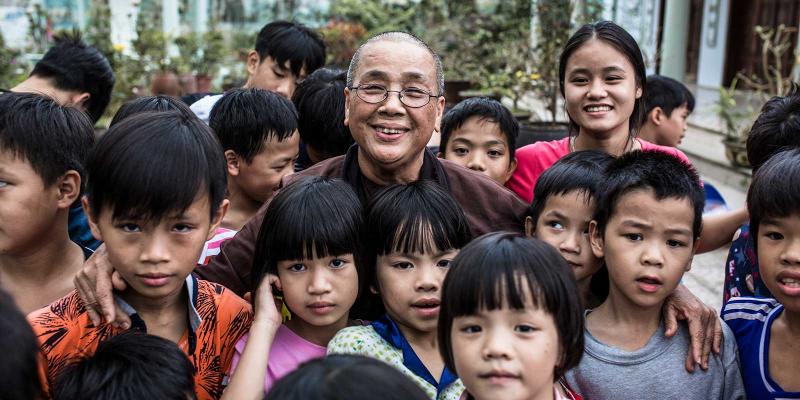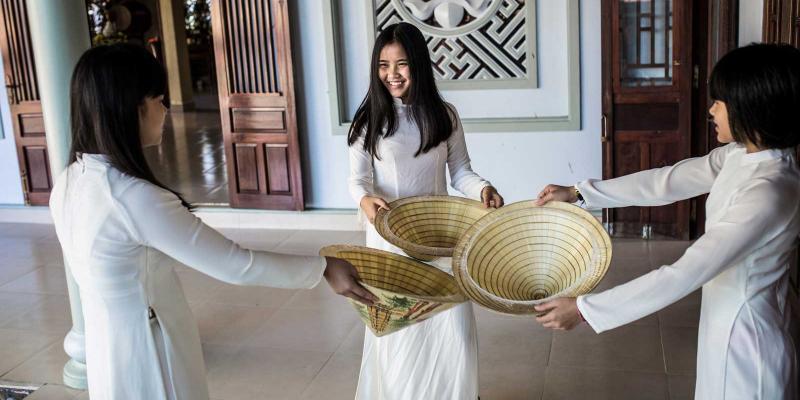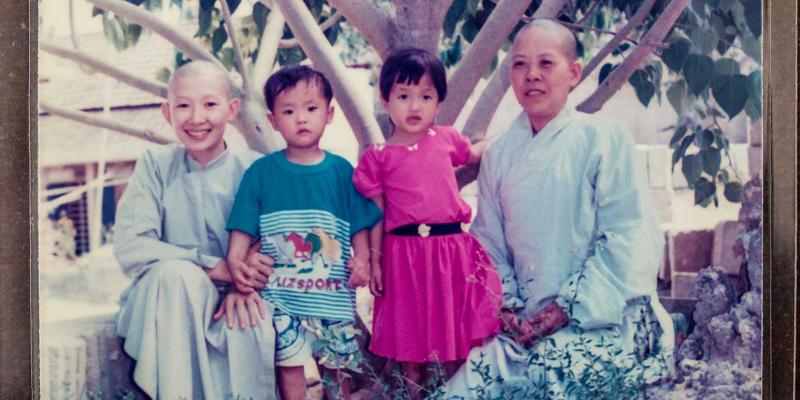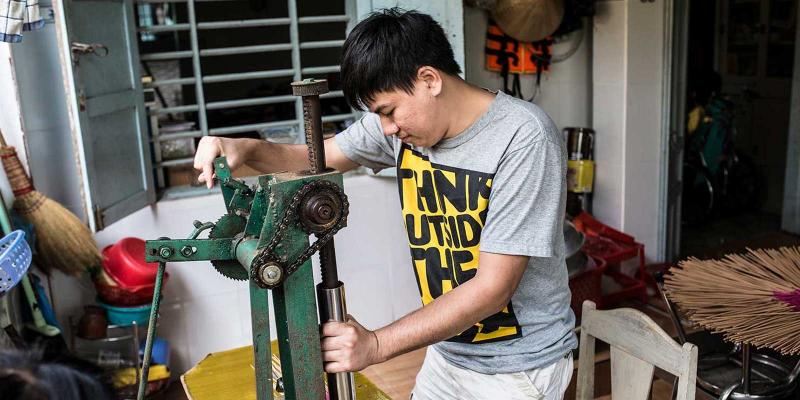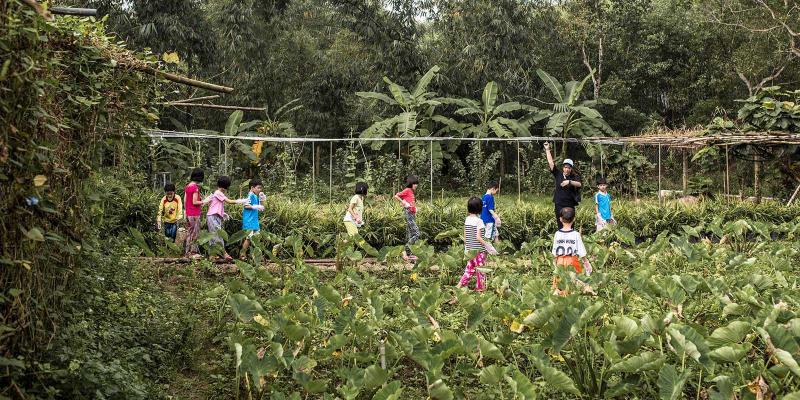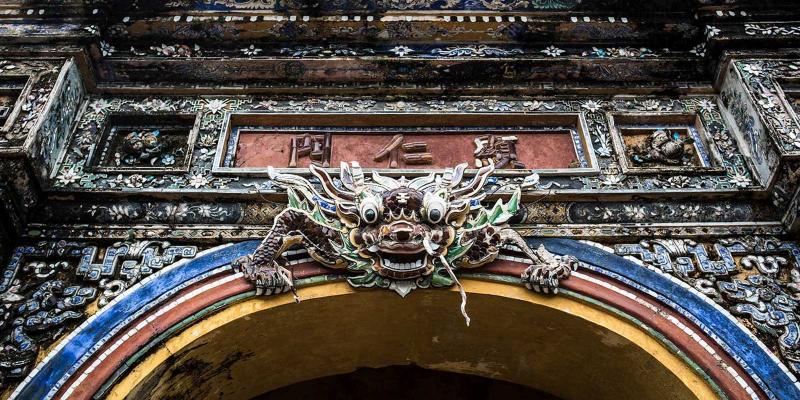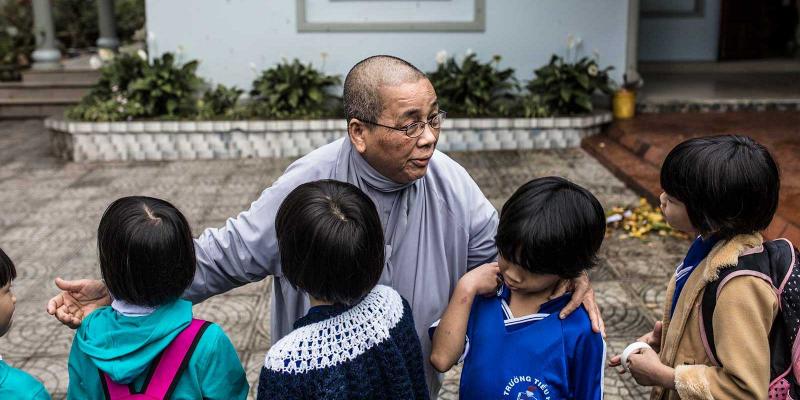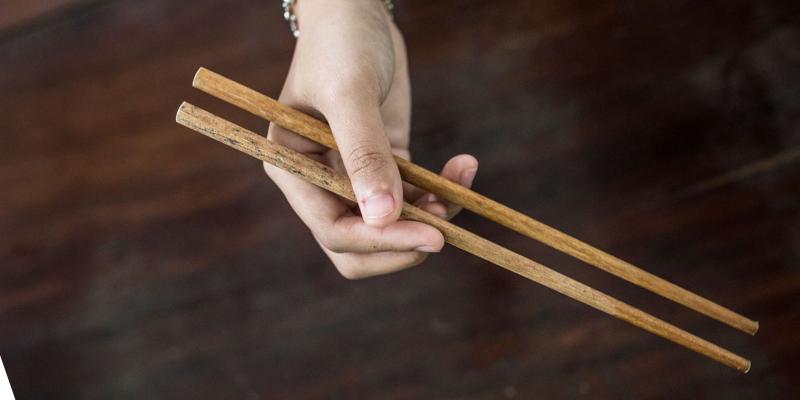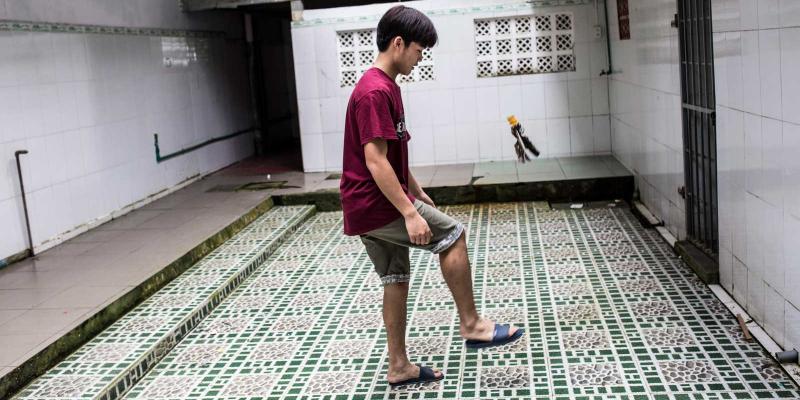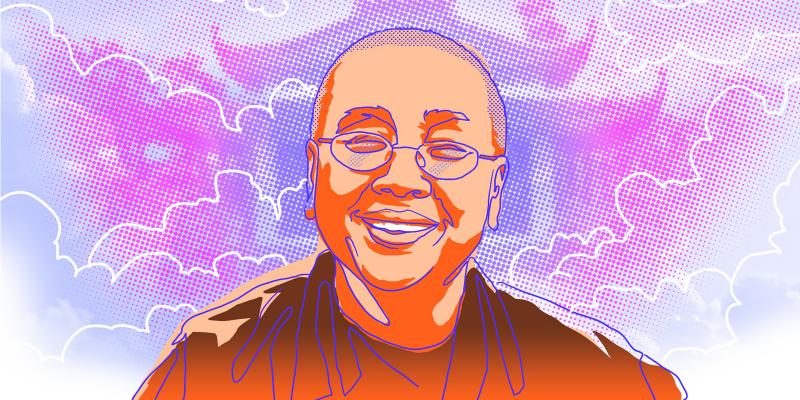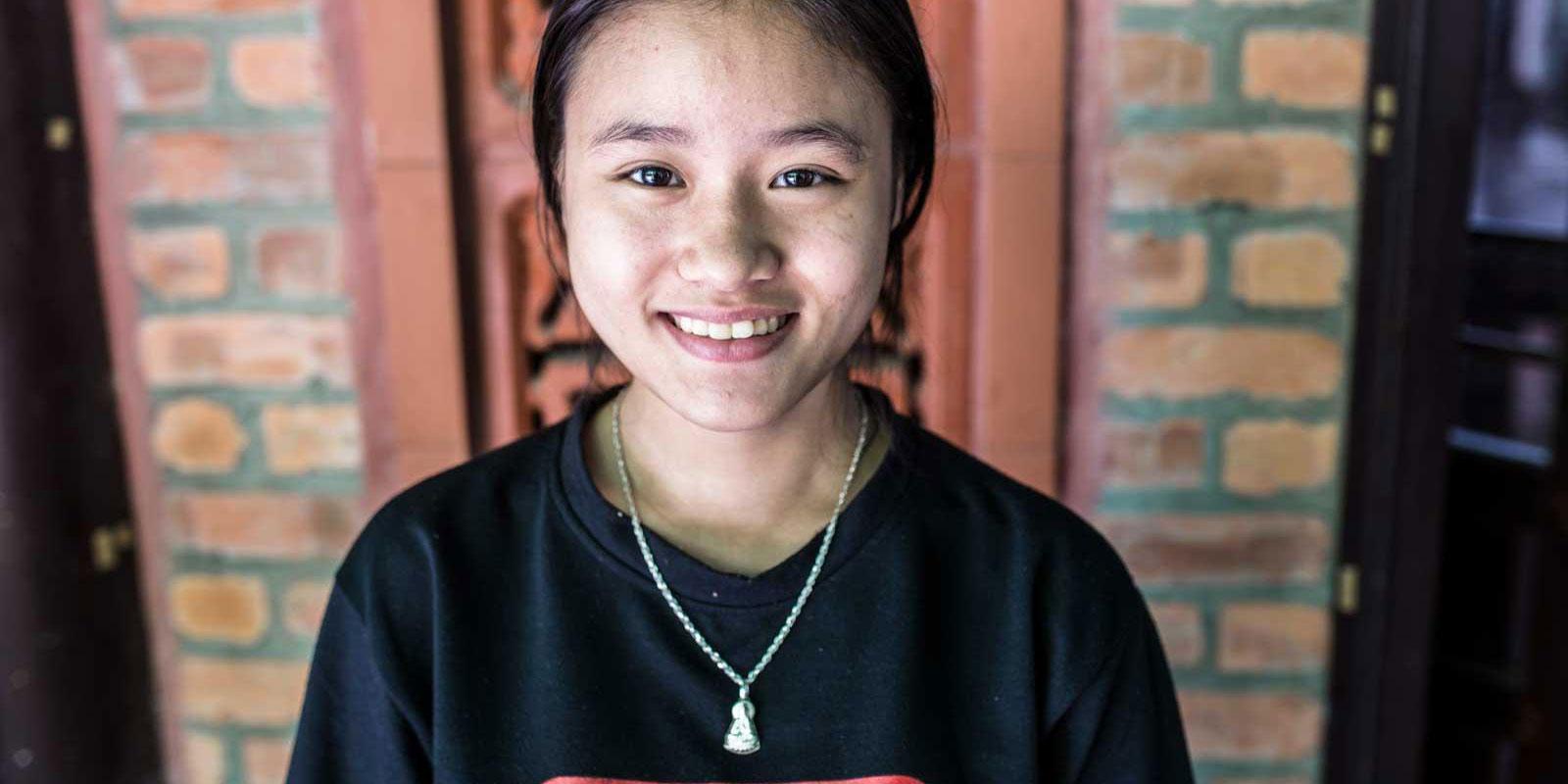
Mai was just one month old when she lost both her parents in Vietnam’s worst rainstorm in a hundred years. The family’s friends took Mai to Minh Tú, who welcomed her with open arms. When Mai was older, her first dream for the future was to be like Minh Tú and help the poor.
In a matter of days, the vast Huong River, which flows through the city of Huế, rose by several metres. Everyone was forced to escape the rising floodwater.
Little Mai was just one month old. Her dad disappeared in the torrent, but her mum refused to believe he was dead. She left Mai with some friends to look for Mai’s dad.
The rain continued for several days. It felt like it would never end. When it finally stopped raining, both Mai’s parents were gone. The family’s friends waited for over a month, but they never came back. The friends wondered what to do if the little girl’s parents were dead.
“Go to Minh Tú at Duc Son pagoda,” said one of them. “She looks after children.”
Mai meets Minh Tú
A woman took Mai in her arms and travelled to the pagoda, which is south of Huế, 800 metres from the Huong River.The steep driveway and steps up to the pagoda showed signs of the flooding. As the rain poured down, the waters of the Huong River had reached far above the many raised statues and right into the nuns’ sleeping quarters. A petite nun wearing glasses met the woman and Mai.
“I have a girl here who lost her parents in the flooding,” said the woman.
“Don’t worry,” said the nun, who introduced herself as Minh Tú. She was the one in charge of the pagoda. The nuns were already looking after many other orphaned children.
“What’s her name?” asked Minh Tú.
“Her parents nameed her Mai,” replied the woman.
Once the woman had signed a piece of paper, she turned and left. Minh Tú was left standing at the entrance with yet another little child who would grow up in the pagoda’s children’s home.
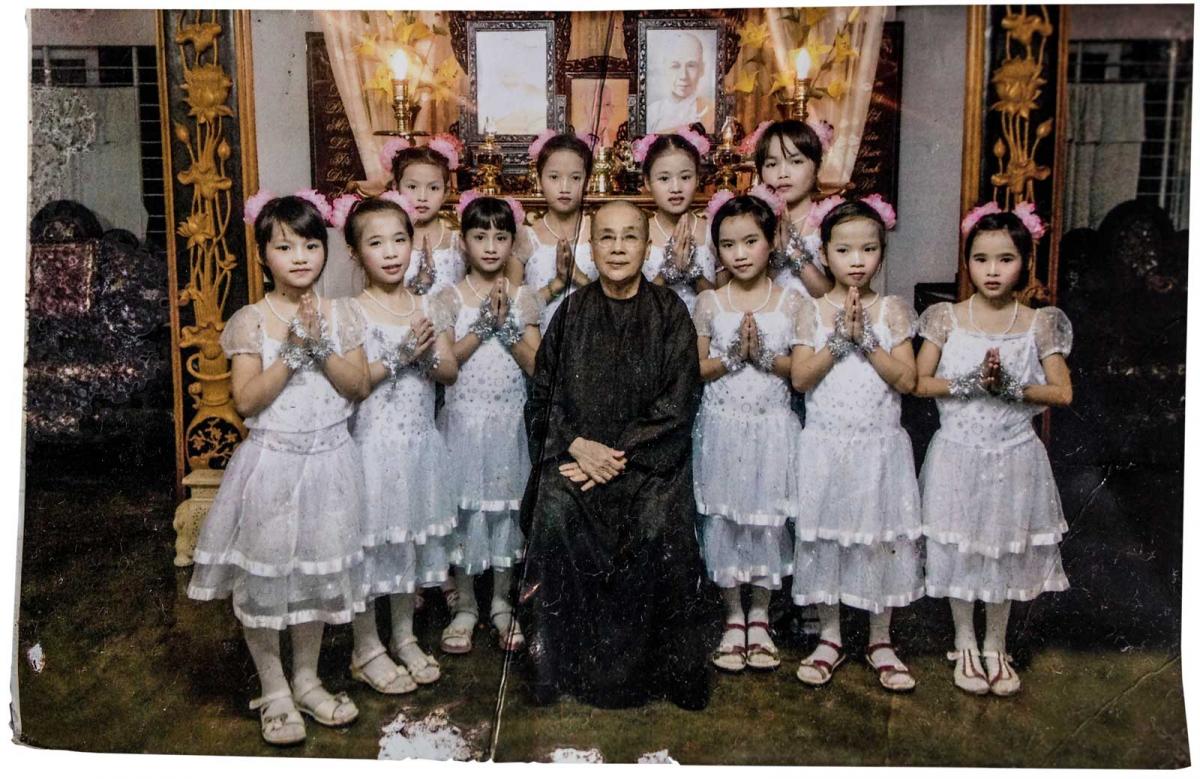
Wanted to help the poor
Mai settled in quickly at the children’s home. The older children helped the nuns take care of her and the other little ones.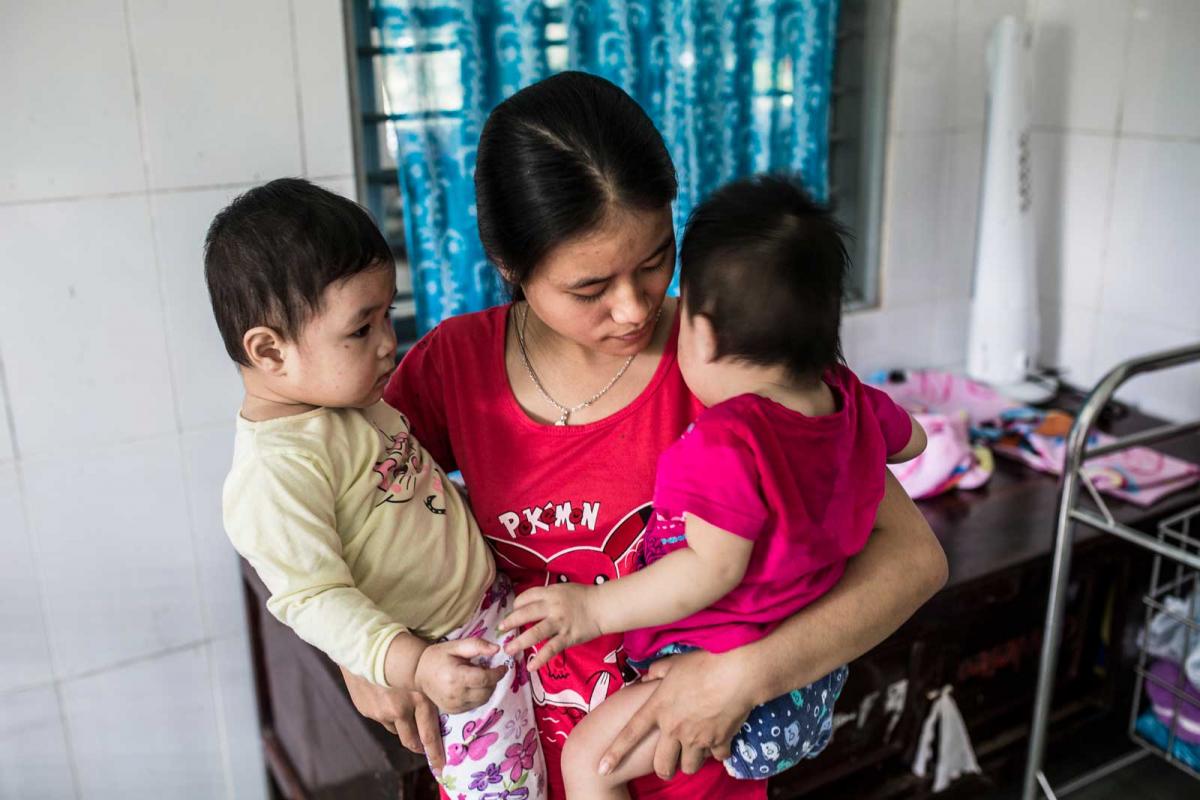
When she started school, Mai too began helping out with the younger children. She looked up to the nuns and read about Buddhism. Soon she moved her things to the young children’s section. Just like the nuns, she wanted to be like a mother to the youngest children.
Minh Tú had told Mai the story of how she came to be at the pagoda and what had happened to her parents. Mai thought that if she was a good Buddhist then maybe she would be reunited with her parents in another life.
“I want to be like you, Minh Tú,” said Mai one day.
“How do you mean?” asked Minh Tú.
“I want to be a nun here at the temple and help poor people,” replied Mai.
Minh Tú explained that Mai didn’t have to be a nun.
“You know that you can be whatever you want. I’ll pay for your schooling and university if you want.”

Minh Tú said that if Mai wanted to be a nun she would have to devote a lot of time to studying Buddhism. So Mai did. She helped the nuns during prayer time every week. When she wasn’t reading about Buddha and writing long texts using old-style Vietnamese characters, Mai continued to go to school and look after the younger children. Her spare time was taken up with dancing and drawing.
From nun to doctor
Soon Mai started high school. Those of her school friends who lived at home with their parents were always talking about what they did in their spare time. How they met up, went to the shops and had fun together. Sometimes they asked Mai if she wanted to come too, but it wasn’t so easy to get permission from Minh Tú.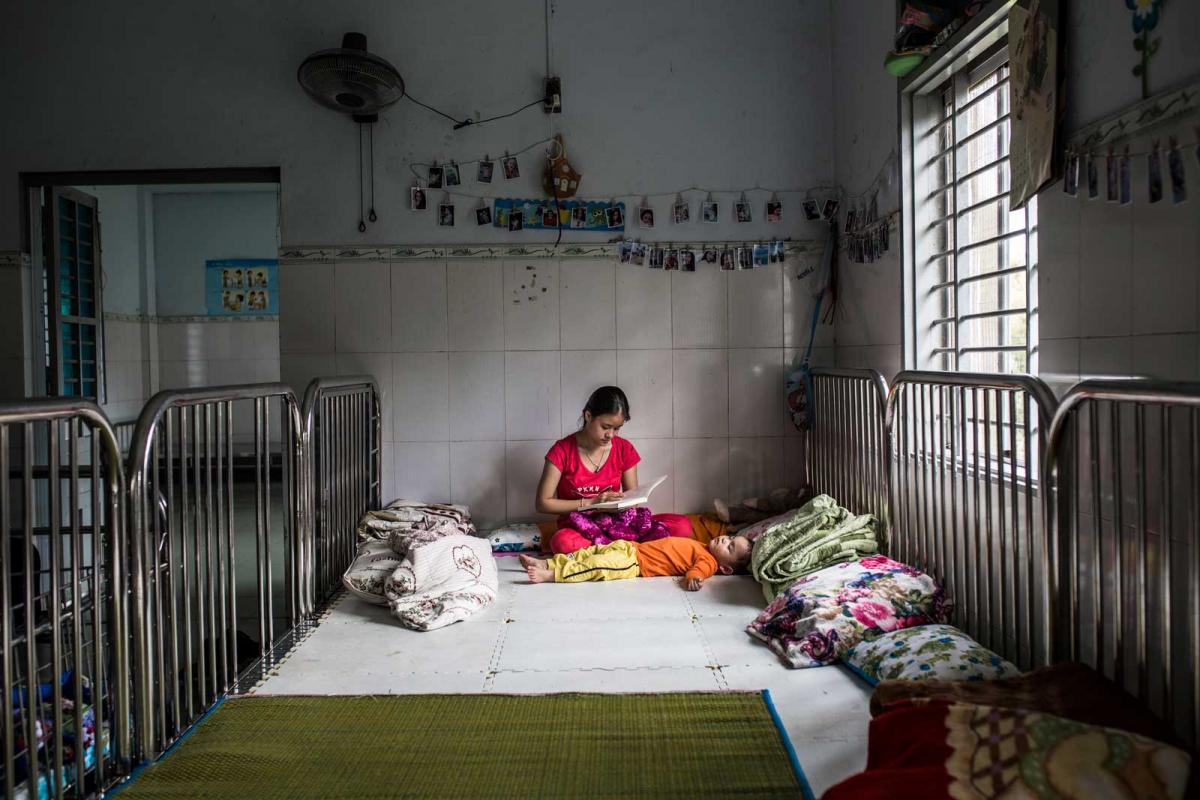
Her friends talked about what they planned to study at university. Mai realised that she would also be able to help people as a doctor. Maybe she didn’t have to be a nun?
At school, Mai also learned that you didn’t have to be a nun to meet your parents in another life. You could believe in more lives while also working as a doctor, or something else.
“You’re like a mother to me, Minh Tú. I love you and the other nuns. You are kind, but I don’t want to be a nun anymore. I want to be a doctor,” said Mai.
“That’s a good idea,” said Minh Tú. “If you study hard and get into university, it’s possible.”
A new dream
Children have to pass a difficult exam in order to get into high school in Vietnam. It wasn’t a problem for Mai, but she began to realise that getting into medical school would be tough.A new idea started forming in her head. Mai asked the nuns if she and the other children could learn to play music. Minh Tú appointed a music teacher and it soon turned out that Mai was very good at playing the zither.

Now Mai has a new dream. She wants to study music at the highly respected academy of music in Huế. To be accepted there she has to pass a difficult test. She’s practising every day to make her dreams come true!

Facts about flooding: Several metres of rain
Vietnam has two seasons: a dry and a rainy season. It rains a lot from September to February. Mostly in the area around Hû’, which is particularly exposed to severe tropical storms. There can be over two metres of rain from September to December alone. When it rains too much, the ground just can’t cope with all the water at once. Meanwhile, the water in rivers and other watercourses starts to rise sharply.Large areas of ground can get flooded very quickly. During the flooding in Hû’ in November 1999, when Mai’s parents disappeared, the Huong River rose three metres in just three days. Seven provinces in the vicinity of the river were under several metres of water for days. Seven million people were affected. In the future, rains and floods may become even worse due to climate change.
Text: Erik Halkjaer
Photo: Jesper Klemedsson
Related stories
Långgatan 13, 647 30, Mariefred, Sweden
Phone: +46-159-129 00 • info@worldschildrensprize.org
© 2020 World’s Children’s Prize Foundation. All rights reserved. WORLD'S CHILDREN'S PRIZE®, the Foundation's logo, WORLD'S CHILDREN'S PRIZE FOR THE RIGHTS OF THE CHILD®, WORLD'S CHILDREN'S PARLIAMENT®, WORLD'S CHILDREN'S OMBUDSMAN®, WORLD'S CHILDREN'S PRESS CONFERENCE® and YOU ME EQUAL RIGHTS are service marks of the Foundation.



